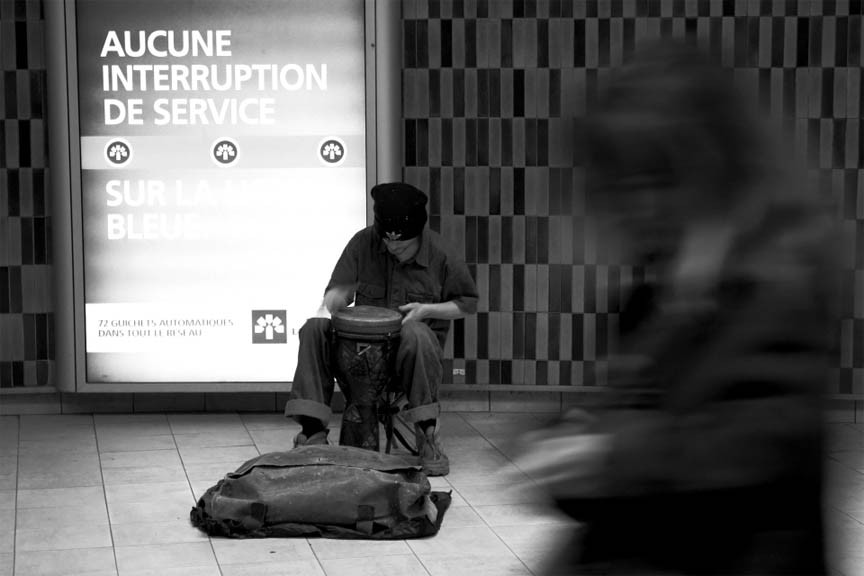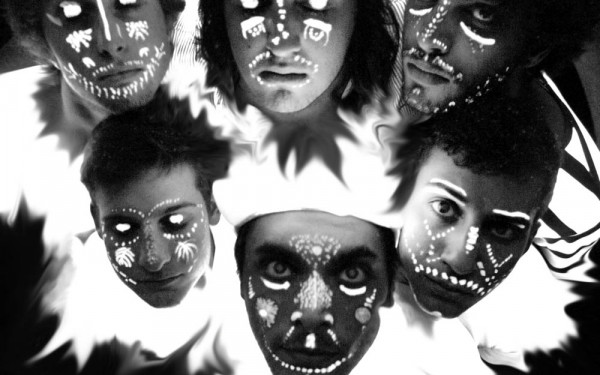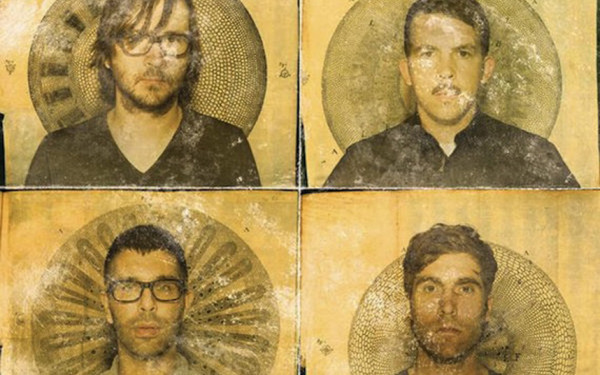Busk a Move
Getting a Gig in Montreal’s Most Populous Venue: The Metro
Echoes of Johann Sebastian Bach resound through the basement walls of the Saint-Jean-Berchmans church on Cartier Street in Rosemont.
The large, well-lit room is bare except for a cameraman, green-screen, a panel of judges, a registration table, a few onlookers and a man named Charles Muis, who—along with his violin—is the source of the intricately played music flowing through the space.
Muis is in the midst of an audition. He hopes to be granted a membership at Le régroupement des musicians du métro du Montréal—a union that represents the interests and rights of the musicians and buskers that play in the Montreal Metro.
He is the first of many that have registered for the day’s tryouts. Musicians must pre-register for auditions, which take place every Sunday, and will last until everyone that wants a chance to try out has had one.
In order to become a member of the RMMM, musicians must pass an audition in front of a panel of experts. If they are given an OK, they then have the option of paying a $60 fee for an annual membership.
While the RMMM membership card is not a requirement to play music in the Metro, there are certainly numerous benefits that go along with having one.
Stéphane Lemieux, president of RMMM, explained that the union acts as a vehicle for Metro musicians to express their needs and concerns to the Société de Transport de Montréal and vice versa. Lemieux said that joining the RMMM gives musicians increased credibility and, most importantly, a voice.
Lemieux recognizes that the Metro is a shared space and says that the union works closely with the STM in order to ensure that everyone’s underground musical experience is enjoyable.
While he is currently pleased with the RMMM’s collaboration with the STM, Lemieux hopes to take their relationship to the next level. Ultimately, he would like to see the RMMM membership card become recognized as a permit—required for anyone wanting to play music in the Metro.
The RMMM and STM have been meeting frequently and will continue to do so over the upcoming months. Lemieux says to expect significant developments in the next six months—but he can’t reveal anymore than that.
While legal advances are important to him, Lemieux also focuses his efforts on ensuring that buskers are recognized for the important role they play in the lives of Montrealers.
“We want to promote the role of the musician in the Metro, which is to bring people back to their emotions,” said Lemieux. “People pass by on their way to work and school, and we try to bring them back to their feelings.”Jean-François Lapierre has been playing music in the Montreal Metro since the ‘80s, and has recently taken up the position of vice president of RMMM.
Lapierre is a full-time busker who wakes up very early, often as early as 5 a.m., to schedule his playing slot for the day. He feels similarly to Lemieux in that his main goal is to touch people with his music.
Lapierre takes his job very seriously and hopes that he is not seen as a charity act.
“I’m not looking for generosity,” he said. “The way I see it, I’m proud of what I do, and hope people appreciate it.”
This is the mindset the RMMM is looking for from candidates at its auditions. This year’s panel is made up of musical experts Jean-Pierre Labrèche, Ray Malone and Alexis Cochard.
The panel will ask those auditioning to play two pieces of their choice. They will then use a basic list of criteria to evaluate musicians in various categories. Regardless of how the audition goes, the panel will provide the artist with feedback, and offer them tips on how to improve.
“We try to bring them to a professional level,” said Labrèche.
The judges explained that while they are there to weed out the contestants who “don’t even know which way to hold their guitar,” they aren’t there to be the gatekeepers of an exclusive club.
“It’s not American Idol here. We aren’t here to laugh at anybody or put them down,” said Malone, the coordinating judge. “What we really need to think about are the people who are walking through the Metro everyday—we must ask ourselves, is this acceptable for them?”
The judges explained that they see a wide range of styles and talents at auditions. While obviously honed talents such as Muis are a shoe-in for the card, you don’t have to be virtuoso to get into the RMMM.
“If we see that if in their heart they are a musician, then that is fine with us. “ said Malone “We are not here to judge who is and who is not a musician.”
As the vibrations of Bach in the background switch over to the mellow chords of a folksy acoustic duo, it’s evident that RMMM’s search for true and passionate musicians is off to a good start.
This article originally appeared in Volume 31, Issue 25, published March 8, 2011.







